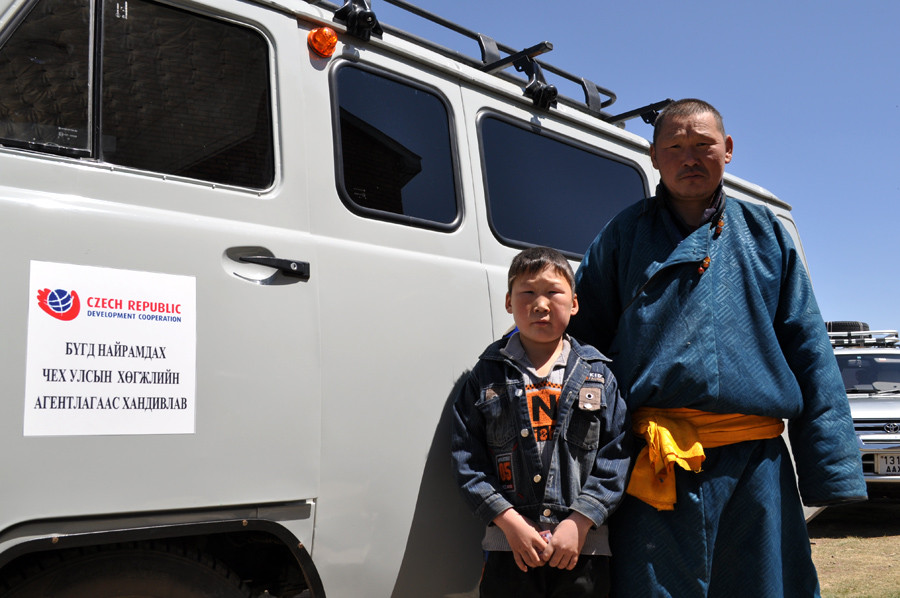Mongolia: Civil Society & Inclusive Governance
Rooted in our commitment to empowering local actors, we support civil society to play a key role in social, economic, and democratic development in our target communities in Mongolia.
We provide opportunities for civil society actors to develop the technical skills and mechanisms to become more effective governance and development actors. We support civil society to engage with government actors to advance participatory democratic processes and the development of inclusive public services. Specifically, PIN targets a range of civil society actors, including youth and marginalized communities – such as LGBTQIA+ persons, people living with disability (PLWD), women empowerment groups and others – to ensure that government policies and services are socially inclusive and aligned with international human rights and gender equality principles.
In parallel, we promote active citizenship and climate justice, empowering individuals to exercise their human rights, engage in democratic processes and hold government officials accountable.
With the aim of supporting inclusive good governance, we are focused on the active engagement of communities in local inclusive and equitable decision-making processes to achieve sustainable outcomes and emphasises effective cooperation among civil society, governments, and communities.
Ongoing aidORPast aid programmes

Increasing the quality of education at the University of Ulaanbaatar

University collaboration on understanding the interaction between the livestock and freely roaming cattle

One World in Mongolian schools
The current social situation in Mongolia is characterised by the high level of domestic violence, human trafficking and subsequent sexual exploitation within the country and abroad. This and other pressing matters are the objectives of our programme of using documentary films during school tuition intended for students as well as the secondary and trade school teachers. Its objective is to increase awareness of young people in human rights issues.
The students of the schools involved in the programme attend the screening of selected documentary films and participate in subsequent activities which generally take the form of discussions. The schools are provided with a DVD, manuals and worksheets. The teachers have the opportunity to participate in trainings and workshops where they can acquire methodology for human rights tuition and increase their factual knowledge. 20 schools from Bulgan, Darchan-Uul, Orkhon and Selenge aimags participated in the programme in 2012, with the participation of 1,500 students and 50 educators.
In 2013, 52 educators received training in the methodology of using documentary films and facilitating methods. A special education package with documentary films and additional didactic materials was created for teachers and subsequently distributed to all 52 teachers from 23 schools in Darkhan-Uul, Selenge, Orkhon a Bulgan aimags. Screenings of documentary films concerning with human rights was in 2013 attended by approximately 8,000 students. The first screenings in the newly established school film clubs were attended by approximately 520 students.
In 2014, the One World at Schools programme in Mongolia extended to Arkhangai, Uvurkhangai, Tuv, Gobi-Sumbe and Ulaanbaatar aimags. During the school year the teachers and the students between 14 to 19 from 20 different secondary and trade schools will newly participate in the activities.
On the basis of the wealth of experience with the One World organization at Czech, Lebanese, Armenian, Georgian and other foreign schools People in Need expect that introducing human rights topics into the school curriculum will in the long-term view lead to greater participation of young people in the functioning of civil society.

Support of secondary vocational education in the fields of agriculture and the processing industry
To improve the situation, People in Need supported vocational and secondary schools and provided financial and expert support directed at modernization and creation of new study departments. These cover mainly education of forestry and woodworking, crop and animal production, agriculture mechanic and the cooking/baking trade. The objective was to change the system of education in a way it would reflect the demand of the labour market and the development as yet unused potential of the region.
In 2012 PIN helped to establish a new forestry department in Sukhbaataru and a department of agricultural mechanization at the vocational school Zuunkharaa in Selenge Aimag . Studies at new school departments were launched for the school year 2013 to 2014, with the first students taking their places behind their desks on 1st September 2013.

Mobile healthcare service
A total of six four-wheel-drive vehicles equipped with modern diagnostic tools were presented to the regional hospitals in 2011 in Archangaj and Uvurchangaj aimags, in 2012 in Bayankhongor and Zavchan aimags and in 2013 in Huvsgul and Umnogobi aimags. These mobile clinics in regular cycles do the rounds of all of the aimags, supporting the inadequately staffed and equipped rural hospitals and, when necessary, they visit the remotest of places too. Their main objective is the diagnosis and prevention. They carry equipment and materials for providing help in the acute cases.
Medical experts trained 125 employees of regional hospitals to man the off-road mobile clinics. In cooperation with hospitals they also put together itineraries, a monitoring plan and an equipment use manual. Between 2011 and 2013, the mobile clinics provided healthcare to more than 31,000 persons living in remote rural areas.



